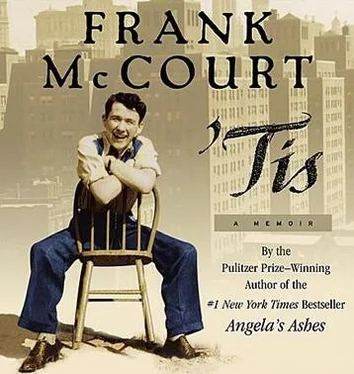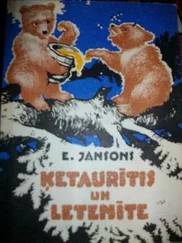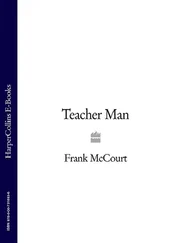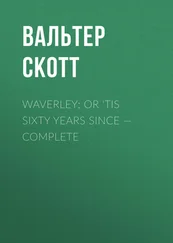Frank McCourt - 'Tis
Здесь есть возможность читать онлайн «Frank McCourt - 'Tis» весь текст электронной книги совершенно бесплатно (целиком полную версию без сокращений). В некоторых случаях можно слушать аудио, скачать через торрент в формате fb2 и присутствует краткое содержание. Жанр: Старинная литература, на английском языке. Описание произведения, (предисловие) а так же отзывы посетителей доступны на портале библиотеки ЛибКат.
- Название:'Tis
- Автор:
- Жанр:
- Год:неизвестен
- ISBN:нет данных
- Рейтинг книги:3 / 5. Голосов: 1
-
Избранное:Добавить в избранное
- Отзывы:
-
Ваша оценка:
- 60
- 1
- 2
- 3
- 4
- 5
'Tis: краткое содержание, описание и аннотация
Предлагаем к чтению аннотацию, описание, краткое содержание или предисловие (зависит от того, что написал сам автор книги «'Tis»). Если вы не нашли необходимую информацию о книге — напишите в комментариях, мы постараемся отыскать её.
'Tis — читать онлайн бесплатно полную книгу (весь текст) целиком
Ниже представлен текст книги, разбитый по страницам. Система сохранения места последней прочитанной страницы, позволяет с удобством читать онлайн бесплатно книгу «'Tis», без необходимости каждый раз заново искать на чём Вы остановились. Поставьте закладку, и сможете в любой момент перейти на страницу, на которой закончили чтение.
Интервал:
Закладка:
They didn’t know I was born lower class, using daughter and wife to ease myself into their world. They worried about something that comes before kindergarten, preschool, and I was learning that kids have to be kept busy. A few wild minutes in the sandbox is okay but play should really be structured and supervised. You just can’t have enough structure. If a child is aggressive you have to worry. Quiet? Same worry. It’s all antisocial behavior. Kids must learn to adjust, or else.
I wanted to send Maggie to a public elementary school or even the Catholic school down the street but Alberta insisted on an ivy-covered pile that had once been a school for Episcopalian girls and I didn’t have the stomach for the fight. It would surely be more respectable and we’d meet a better class of people.
Oh, we did. There were stockbrokers, investment bankers, engineers, heirs to old fortunes, professors, obstetricians. There would be parties where they’d say, And what do you do? and when I said I was a teacher they’d turn away. It didn’t matter that we had a mortgage on a Cobble Hill brownstone, that we kept in step with other gentrifying couples, exposing our bricks, our beams, ourselves.
It was too much for me. I didn’t know how to be a husband, a father, a house owner with two tenants, a certified member of the middle class. I didn’t know how to proceed, how to dress, how to chatter of the stockmarket at parties, how to play squash or golf, how to give a testosteronic handshake and look my man in the eye with a, Pleasure to meet you, sir.
Alberta would say she wanted nice things and I never knew what that meant. Or I didn’t care. She’d want to go antiquing along Atlantic Avenue and I’d want to chat with Sam Colton in his Montague Street bookshop or have a beer at the Blarney Rose with Yonk Kling. Alberta would talk about Queen Anne tables, Regency sideboards, Victorian ewers, and I didn’t give a fiddler’s fart. Her friends talked about good taste and rounded on me when I said good taste was what pops up when the imagination dies. The air was thick with good taste and I felt suffocated.
The marriage had become a sustained squabble and there was Maggie, trapped in the middle of it. After school every day she had to follow the routine passed down by a Yankee grandmother in Rhode Island. Change your clothes, drink milk, eat cookies, do your homework because you’re not getting out of the house till you do. That’s what you’re supposed to do. That’s what your mother did. Then you can play with Claire till it’s dinnertime where you have to sit with parents who are civil only because of you.
Mornings redeemed the nights. When Maggie grew from toddler to walker to talker she’d come to the kitchen in her dream state, talking dream talk of a flight over the neighborhood with Claire and a landing in the street outside. In April she’d look at the magnolia tree that bloomed beyond the kitchen window and want to know why we couldn’t have that color forever. Why did the green leaves drive away the lovely pink? I told her all the colors must have their day in the world and that seemed to satisfy her.
Mornings with Maggie were as golden or pink or green as the mornings I had with my father in Limerick. Till he went away I had him to myself. Till everything fell apart I had Maggie.
Weekdays I’d walk her to school and then take the train to my classes at Stuyvesant High School. My teenage students wrestled with hormones or struggled with family problems, divorces, custody battles, money, drugs, the death of faith. I felt sorry for them and their parents. I had the perfect little girl and I’d never have their problems.
I did and Maggie did. The marriage crumbled. Slum-reared Irish Catholics have nothing in common with nice girls from New England who had little curtains at their bedroom windows, who wore white gloves right up to their elbows and went to proms with nice boys, who studied etiquette with French nuns and were told, Girls, your virtue is like a dropped vase. You may repair the break but the crack will always be there. Slum-reared Irish Catholics might have recalled what their fathers said, After a full belly all is poetry.
The old Irish had told me, and my mother had warned me, Stick with your own. Marry your own. The devil you know is better than the devil you don’t know.
When Maggie was five I walked out and stayed with a friend. It didn’t last. I wanted my mornings with my daughter. I wanted to sit on the floor before the fire, tell her stories, listen to “Sergeant Pepper’s Lonely Hearts Club Band.” Surely, after all these years, I could work on this marriage, wear a tie, escort Maggie to birthday parties around Brooklyn Heights, charm wives, play squash, pretend an interest in antiques.
I walked Maggie to school. I carried her bookbag, she toted her Barbie lunch box. Around her eighth year she announced, Look, Dad, I want to go to school with my friends. Of course, she was pulling away, going independent, saving herself. She must have known her family was disintegrating, that her father would soon leave forever as his father had long ago and I left for good a week before her eighth birthday.
54
When I look at the framed book jackets on the wall at the Lion’s Head Bar I suffer with envy. Will I ever be up there? The writers travel the land, signing books, appearing on television talk shows. There are parties and women and romance everywhere. People listen. No one listens to teachers. They are pitied for their sad salaries.
But there are powerful days in room 205 at Stuyvesant High School, when discussion of a poem opens the door to a blazing white light and everyone understands the poem and understands the understanding and when the light fades we smile at each other like travelers returned.
My students don’t know it but that classroom is my refuge, sometimes my strength, the setting for my delayed childhood. We dip into the Annotated Mother Goose and the Annotated Alice in Wonderland, and when my students bring in the books of their early years there is delight in the room. You read that book, too? Wow.
A wow in any classroom means something is happening.
There is no talk of quizzes or tests and if grades have to be assigned for the bureaucrats well then students are capable of evaluating themselves. We know what’s going on in “Little Red Riding Hood,” that if you don’t follow the path the way your mother tells you you’re gonna meet that big bad wolf and there will be trouble, man, trouble, and like how come everyone complains about violence on television and no one says a word about the viciousness of the father and stepmother in “Hansel and Gretel,” how come?
From the back of the room a boy’s angry cry, Fathers are such assholes.
And for a whole class period there’s a heated discussion of “Humpty Dumpty.”
Humpty Dumpty sat on the wall,
Humpty Dumpty had a great fall;
All the king’s horses
And all the king’s men
Couldn’t put Humpty together again.
So, I ask, what’s going on in this nursery rhyme? The hands are up. Well, like, this egg falls off the wall and if you study biology or physics you know you can never put an egg back together again. I mean, like, it’s common sense.
Who says it’s an egg? I ask.
Of course it’s an egg. Everyone knows that.
Where does it say it’s an egg?
They’re thinking. They’re searching the text for egg, any mention, any hint of egg. They won’t give in.
There are more hands and indignant assertions of egg. All their lives they knew this rhyme and there was never a doubt that Humpty Dumpty was an egg. They’re comfortable with the idea of egg and why do teachers have to come along and destroy everything with all this analysis.
Читать дальшеИнтервал:
Закладка:
Похожие книги на «'Tis»
Представляем Вашему вниманию похожие книги на «'Tis» списком для выбора. Мы отобрали схожую по названию и смыслу литературу в надежде предоставить читателям больше вариантов отыскать новые, интересные, ещё непрочитанные произведения.
Обсуждение, отзывы о книге «'Tis» и просто собственные мнения читателей. Оставьте ваши комментарии, напишите, что Вы думаете о произведении, его смысле или главных героях. Укажите что конкретно понравилось, а что нет, и почему Вы так считаете.












